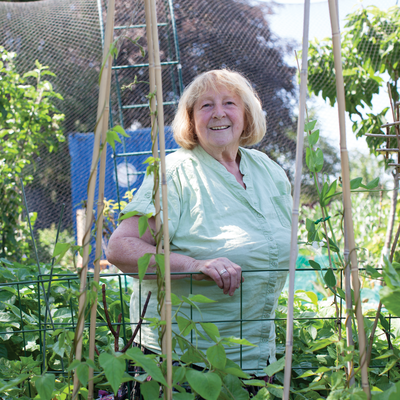How to stay cool in a heatwave
Published on 25 June 2018 10:56 AM
Most of us look forward to the warmer weather and feeling some sun on our faces. But it’s important to be prepared for hot weather as high temperatures can be dangerous to your health.
The sun and skin health
It’s very important to ensure that your skin isn’t exposed to the sun for long periods, as this can lead to sunburn and make you more susceptible to skin cancer. Anyone can develop skin cancer, so it’s important to protect yourself whatever your skin type.
Protecting your skin
- Use sunscreen of at least sun protection factor (SPF) 15 with four or five stars. Apply it generously and top up at least every two hours and if you've been in water, reapply when you are dry. The sunscreen’s star rating shows its ability to protect your skin from damage and premature ageing.
- Apply sunscreen to any uncovered parts of your body. A hat will protect your head, face, ears and eyes.
- Choose sunglasses that have a CE mark, UV400 label or a statement that they offer 100 per cent UV (ultraviolet) protection.
- When the weather is hot, your skin may also feel drier than usual. Using moisturiser can help keep your skin healthy.
- If you have moles or brown patches on your skin, they usually remain harmless. But if they bleed, or change size, shape or colour, show them to your GP without delay. For more information visit the Cancer Research UK website.
Sun exposure and vitamin D
Although it’s important to protect your skin, some direct exposure to the sun is essential for the production of vitamin D.
Don’t let your skin burn, but try to go outside once or twice every day without sunscreen for short periods from March to October. The more of your skin that is exposed, the better your chance of making enough vitamin D.
There are some food sources of vitamin D – salmon, sardines and other oily fish, eggs and fortified spreads – but sunshine is the major source.
The Government recommends vitamin D supplements for some groups of the population, including people aged 65 and over.
If you think you could be at risk of not getting enough vitamin D, particularly if you are housebound or cover your skin for cultural reasons, raise this with your GP. Always speak to your GP before starting to take a vitamin supplement or over-the-counter medicine on a daily basis.
Dehydration and overheating
Extreme heat and dry conditions can cause you to dehydrate and your body to overheat.
It’s important to eat a balanced diet to help your body replace any salt you lose by sweating. Aim to drink 6 – 8 glasses of liquid a day, and more if it’s hot.
You may also need to be careful if you’re taking some types of medication that affect water retention. Speak to your GP if you’re concerned.
Watch out for certain signs – particularly for muscle cramps in your arms, legs or stomach, mild confusion, weakness or sleep problems. If you have any of these, rest in a cool place and drink plenty of fluids. Seek medical advice if your symptoms persist or worsen.
Heat exhaustion and heatstroke
Heat exhaustion
The symptoms of heat exhaustion include headaches, dizziness, nausea or vomiting, intense thirst, heavy sweating and a fast pulse.
If you have any of these symptoms you must, if at all possible:
- find a cool place and loosen tight clothes
- drink plenty of water or fruit juice
- sponge yourself with cool water or have a cool shower.
Your symptoms should improve within 30 minutes. If you're feeling better but still have any concerns, call your GP or NHS 111 for advice.
Heatstroke
Heatstroke can develop if heat exhaustion is left untreated – it can also develop suddenly and without warning.
The symptoms of heatstroke include confusion, disorientation, seizures and loss of consciousness.
Heatstroke is a life-threatening condition. If you or someone else shows symptoms:
- call 999 immediately, or 112 if you are in the European Union (you can call 112 from a mobile for free)
- if you have a community alarm, press the button on your pendant to call for help
- while waiting for the ambulance, follow the advice given for heat exhaustion but do not try to give fluids to anyone who is unconscious.

